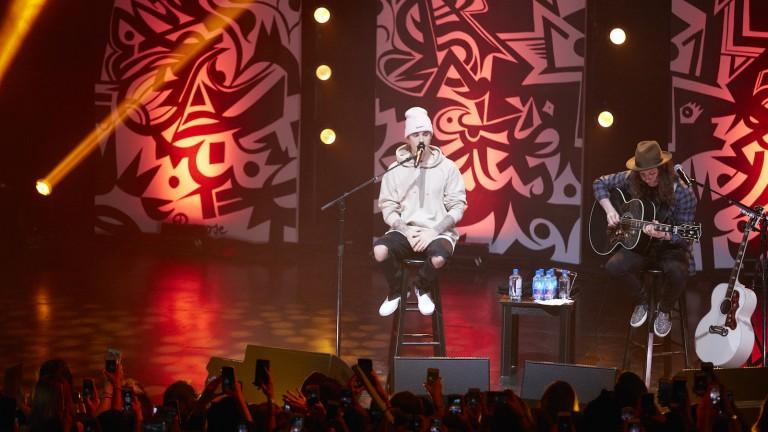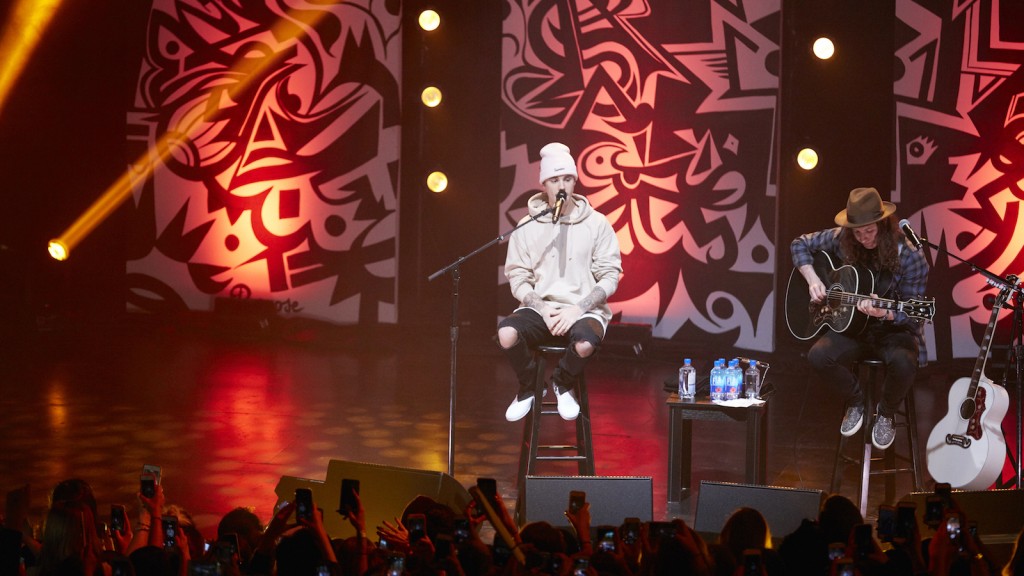Talking points: Bieber makes amends, Hong Kong openness ends
Our short takes on the news of the week, from a pleasant pop star to Chinese politics

Justin Bieber performs an acoustic set at Toronto’s Danforth Music Hall. (Photograph by Jeff Carlson)
Share

Breaking up is hard to do
Britain’s High Court was right to throw a wrench into British Prime Minister Theresa May’s plan to uncouple the U.K. from the EU without first asking Parliament. Britons have never been consulted on the hows and whens of Brexit—in part because leaders of the Leave campaign scurried from the stage after last June’s referendum. Bottom line: to depart the EU is to change the law of the land in the U.K., and in Westminster-style democracies, you can’t change the law without an act of Parliament. The elected representatives of the people have a part to play in this, and now’s their time to take the stage.
Ditching a duopoly
It’s been more than a decade since Canadians could fly across the country without climbing aboard a plane belonging to Air Canada or WestJet. But Transport Minister Marc Garneau is finally hoping to break up the cozy duopoly by raising the current foreign ownership limit on Canadian airlines to 49 per cent, from 25 per cent now. Better yet, he plans to grant would-be competitors, like Vancouver’s Canada Jetlines and Calgary’s Enerjet, immediate access to foreign investors so they can get off the ground by next summer, leading to more competition and lower prices.
Paying to end poverty
A report by Hugh Segal, a former Conservative senator, recommends paying volunteers in a “basic income” pilot project $1,320 a month with no questions asked. That’s slightly more than what’s currently available through the province’s existing social services, meaning there will still be plenty of incentive to work. While the pilot won’t yield the savings that would come with scrapping cumbersome welfare programs, it should still give policy-makers an inkling of whether universal payments are indeed a better, more dignified way to lift people out of poverty—a laudable goal in its own right.
Making Beliebers of us
Justin Bieber is showing signs of becoming a likeable human. During his recent tour, he popped into the practices of pro hockey teams in Germany and the U.K., scrimmaging in his own equipment and signing autographs for fans. On Friday, he played the piano for patrons of a Toronto pub where he’d stopped to watch a basketball game. Bieber has long seemed destined for child-star syndrome, but it’s easy to forget he’s just 22. He still has time—and evidently the inclination—to be a real ambassador for this country.
Back to the bad old days
Forgive us our sense of déjà vu this week as NATO put up to 300,000 troops on alert amid rising tensions between Russia and the Baltic states. Secretary-General Jens Stoltenberg said the organization hopes to speed up the response time of soldiers to allow it to react to—are we hearing this right?—a combat situation. In October, it was reported NATO was preparing to station 4,000 troops on the Russian border with the Baltics in its biggest military build-up since the collapse of the Soviet bloc. The Cold War might be over. But that chill in the air feels awfully familiar.
Shrinking autonomy
Hong Kong’s independence took another blow this week as Chinese leaders blocked two young, pro-independence politicians from taking seats on the territory’s legislative council, raising fears of a constitutional crisis. The two elected representatives had mocked Beijing by using a derogatory pronunciation (“Chee-na”) when swearing their oaths of office—an act already under review by a Hong Kong court. China’s parliament short-circuited the legal process with its unprecedented use of special powers, showing just how thin-skinned it is getting toward dissent. Time was, optimists thought Hong Kong would lead mainland China toward democratization. Today? Not so much.
A long way to go
The Paris Agreement to combat greenhouse gas emissions, signed by 192 nations, is now international law. But while officials are applauding the accord’s quick entry into force, it’s far from clear whether the pact’s goal of limiting global warming to 2° C can actually be achieved. A new UN report says that, even with the cuts pledged in Paris last year, the world is still on track to warm by 3° or 3.4° C by the end of the century unless further drastic action is taken. As the difficult work of reducing emissions begins, there’s yet another ominous sign: no country has stepped up to host the 2017 summit.
Mo’ friends, mo’ problems
Thanks to technology, we’re more connected than ever. But we may not be happier. A recent survey of 1,500 people in Australia suggested adults who reported extensive usage of social media like Facebook and Twitter suffered “significantly higher levels of loneliness and negative emotions.” Now we know why Donald Trump, his finger forever hovering over the “tweet” button, always seems so angry.